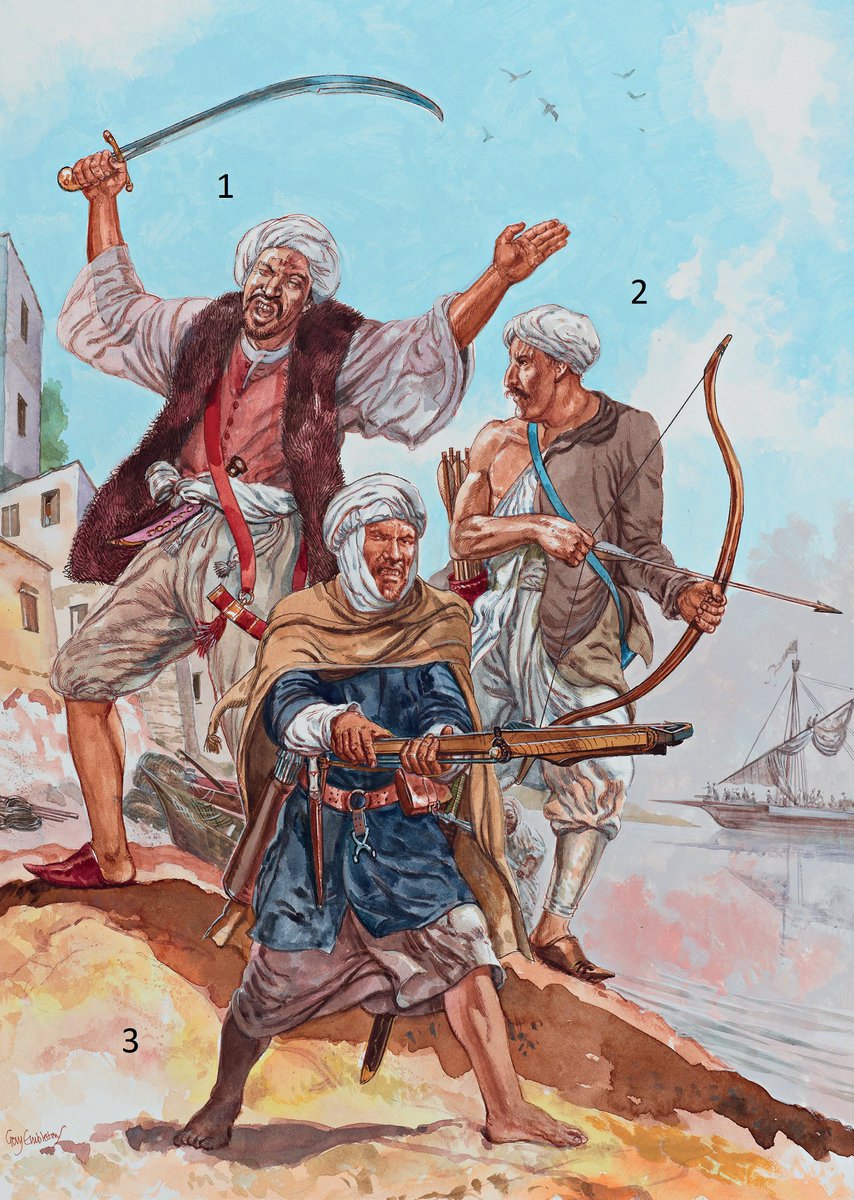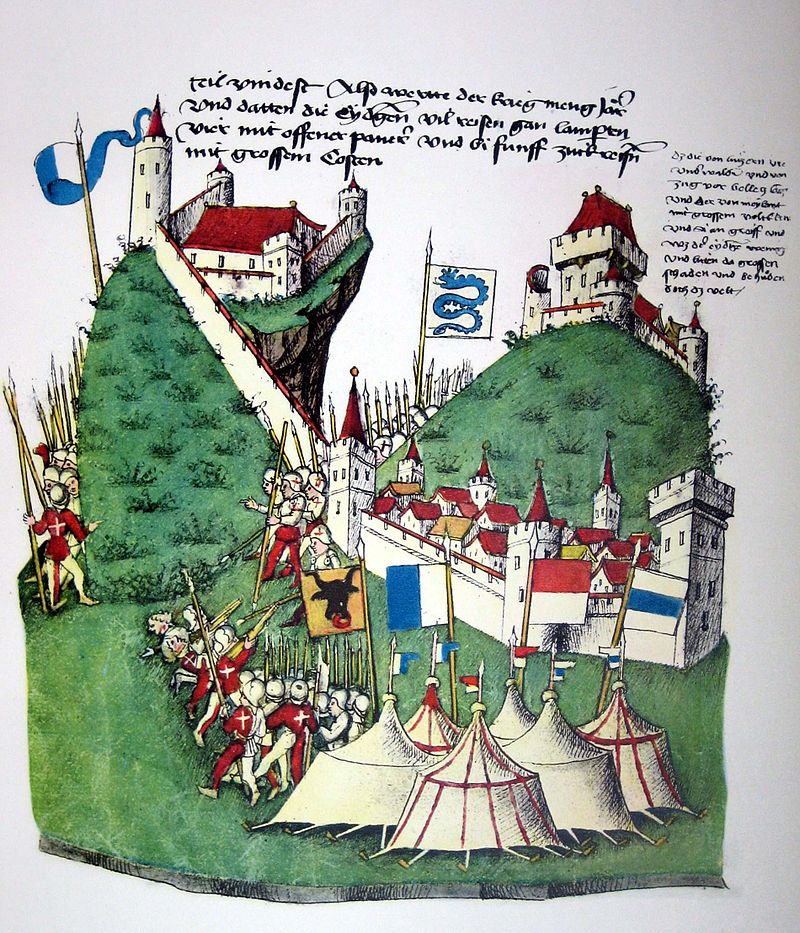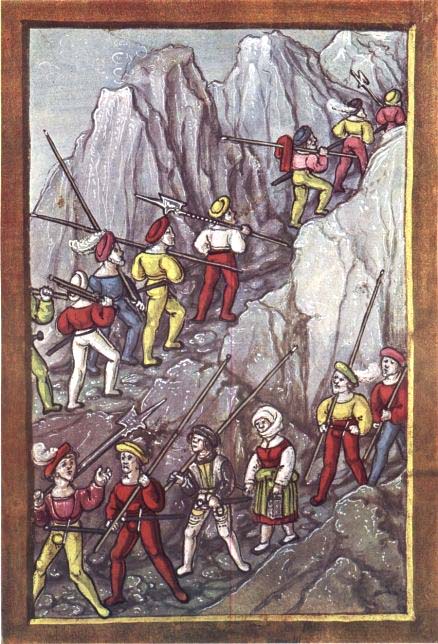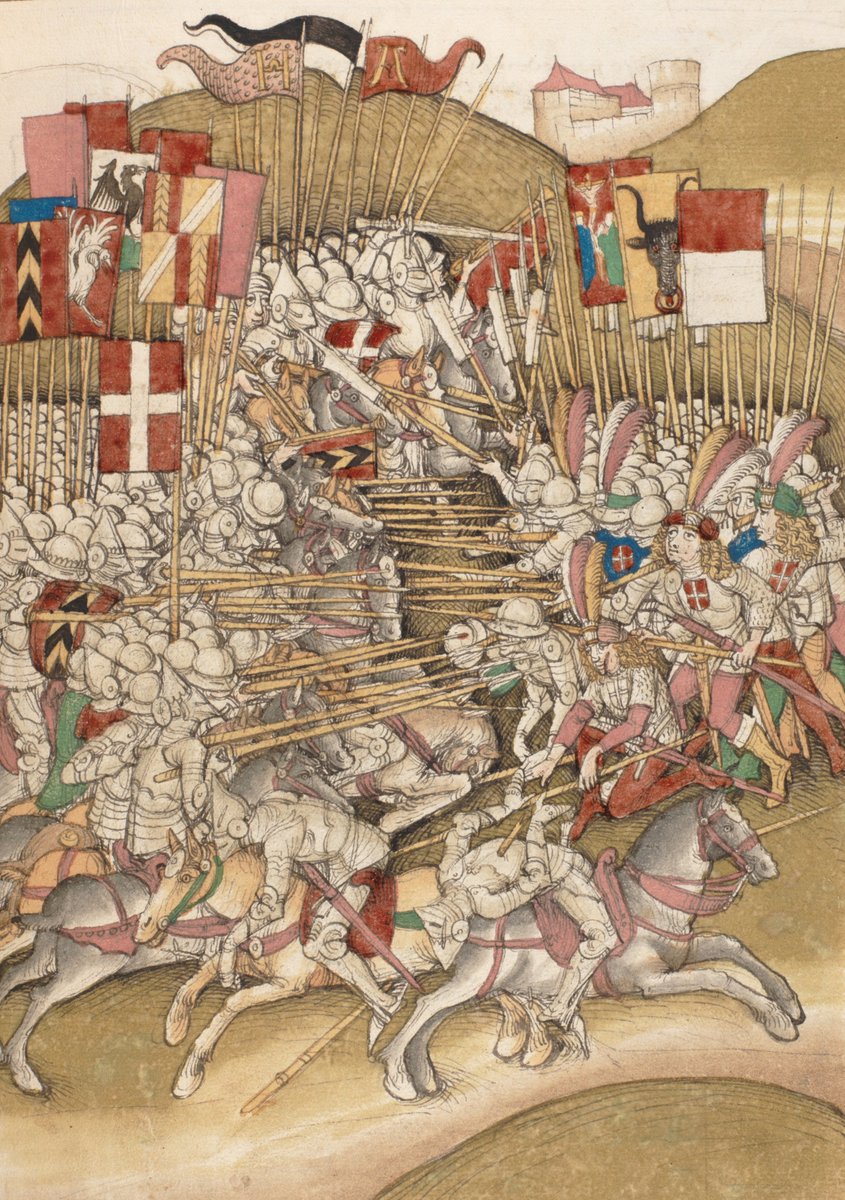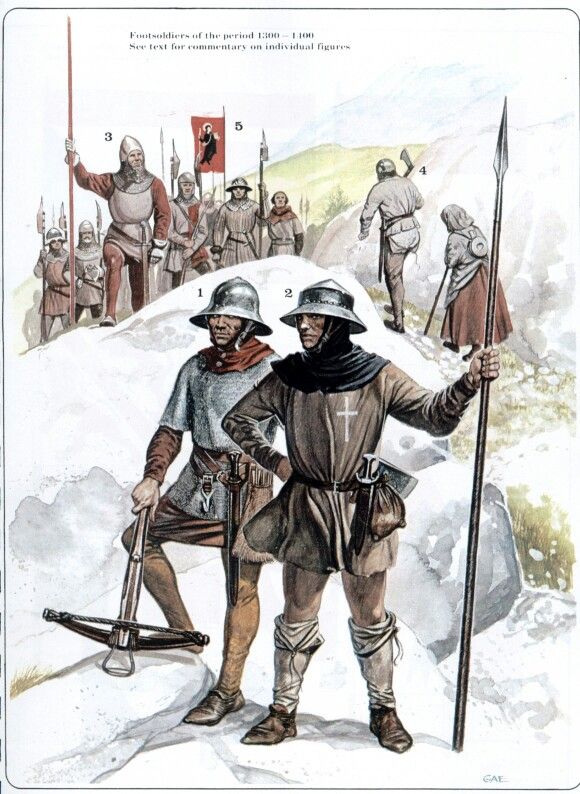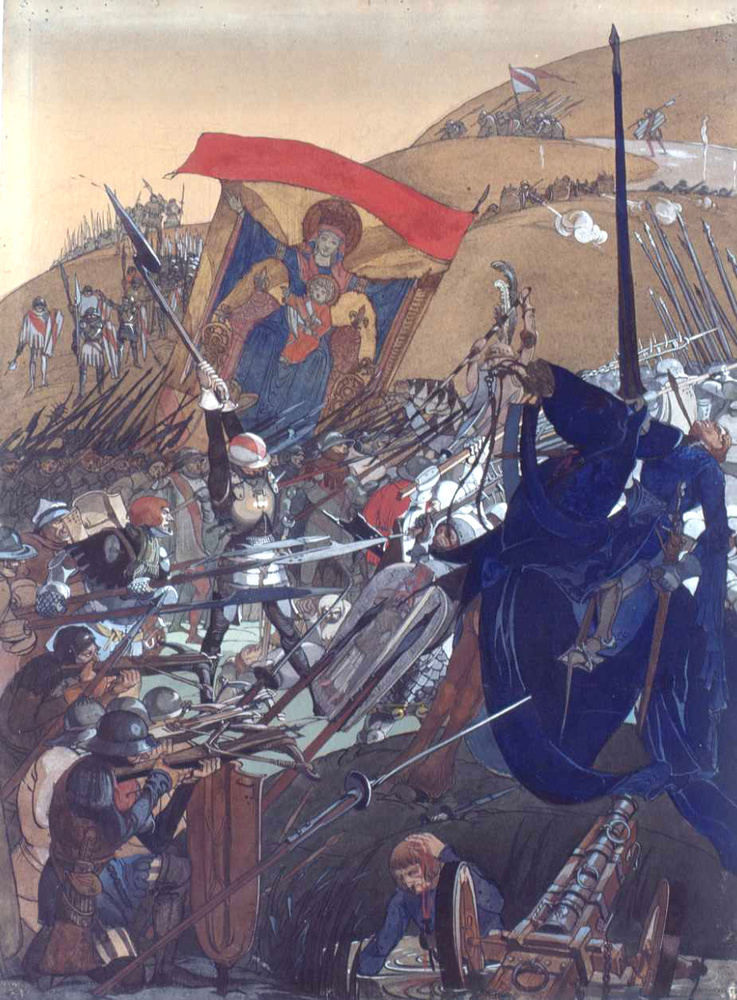
Today 10 October is anniversary of the famous battle of Tours in year 732. Under the leadership of Charles Martel, the Franks defeated the invading army of the Umayyad Caliphate. Their disciplined infantry and experience from previous wars played a crucial part in their victory! 

This battle is very known and probably doesn't need a long introduction. The mighty Umayyad Caliphate met its match when it encountered the skilled Frankish warriors who stopped the spread of Islam. Tours was just one of many of their encounters, but it is the most known one. 

While this battle is notorious for its role in the context in the struggle of Christendom against Islam, but the tactics that Christians used in this battle were much different than what they used later in crusades. At Tours, it was the infantry that played the crucial role! 

While the Normans and crusader knights who fought against Saracens were famed for their lethal cavalry charges, at Tours, it was the Umayyads who had the superior cavalry! They used stirrups which were yet unknown to Franks and their elite cavalry had better weapons. 


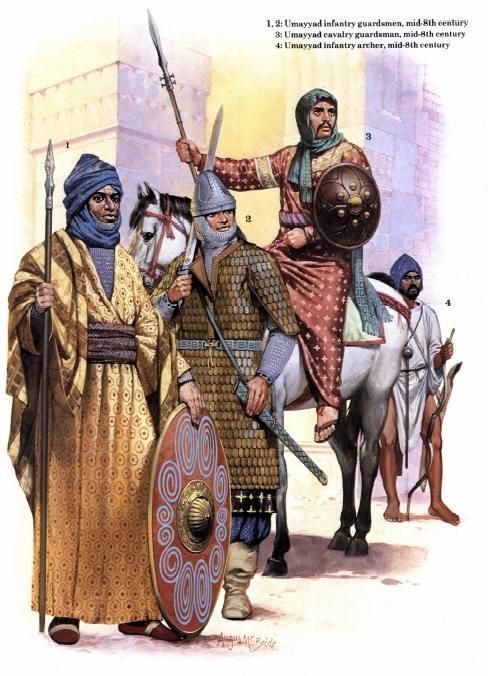
We don't really know the exact numbers, but almost all accounts estimate that at Tours the Umayyad numbers were higher, sometimes significantly higher. The Franks were probably slightly outnumbered at the very least, and were up against a powerful and determined force. 

The Frankish leader Charles Martel did manage to bring together a very large army for Europe at the time, calling to arms Catholic tribes over his realms. Burgundians, Alemanni, Bavarians, Thuringians, Aquitanians and Lombards all took arms. Their numbers estimated up to 20000! 



The most important attribute the Frankish army had at Tours was definitely military experience. Charles Martel himself had fought in many battles against his rivals and neighboring tribes such as Saxons and Neustrians, waging wars as far away as Frisia and Bavaria. 





Because of this reason, the Frankish infantry was a much more formidable and disciplined force than one would expect from infantry at the time. From the accounts it seems that the Umayyad invaders underestimated this aspect. 

The Umayyads had already lost to Christian forces in the region in the past, as they lost the battle of Toulouse in 721 against Odo of Aquitaine who was now serving Charles Martel at Tours, but they lost that battle by a surprise cavalry attack while they besieged Toulouse. 
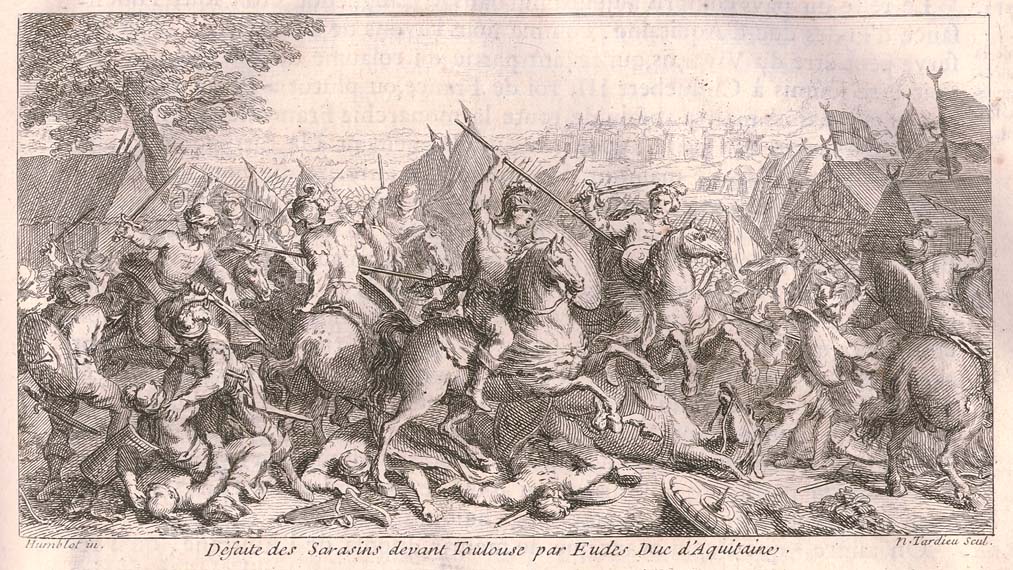
Despite this setback, the Umayyads had all the reasons to be confident. They were the empire on the rise, conquering vast lands with a skilled and experienced army united and motivated by religious fervor. They had already conquered Spain and wanted to progress further. 

Charles Martel knew what he was up against as well as he faced the "mighty race of Ishmael, who are now
known by the outlandish name of Saracens" as the Chronicle of Fredegar puts it. He decided to take a very defensive and cautious approach.

known by the outlandish name of Saracens" as the Chronicle of Fredegar puts it. He decided to take a very defensive and cautious approach.


Charles Martel positioned his army well on the higher ground, with infantry in front and cavalry behind to protect them from being flanked. The trees distorted their real numbers which was deliberate as they were trying to bait the overconfident Umayyads. 



His plan worked as the Umayyads charged with their cavalry before making enough scouting beforehand. They did not expect the infantry to hold the cavalry charge but it did! The Frankish infantry held their ground in tight and disciplined formation. 



"The men of the north stood as motionless as a wall. They were like a belt of ice frozen together," wrote the Mozarabic chronicle in 754 about how well Frankish infantry performed in this battle as the Moorish horsemen attacked them wave after wave without any success. 



This shocked the Moors who did not expect infantry to resist the cavalry charge. Their favorite tactic of pushing strong in the center while flanking the opponents was also neutralized by well chosen position of Frankish troops. They were dragged into a long vicious melee. 

The Franks managed to overwhelm their enemy, but it was also at high cost after vicious fighting. The tactical mastery and prudence of Charles Martel won them the battle, and led them to crucial victory which asserted the power of the Franks in the region. 



The disciplined Franks did not loot the enemy camp immediately after Moors fled, but patiently stayed in their positions over entire night out of caution. Many battles in history were lost due to soldiers looting too early, and Franks did not make this mistake! 

At Tours, patient defensive infantry tactics won the battle for Christendom. Soon after this battle, however, the Europeans would start focusing on developing lethal heavy cavalry charges. The Franks and their descendants would become a powerful force that changed history. 

• • •
Missing some Tweet in this thread? You can try to
force a refresh









